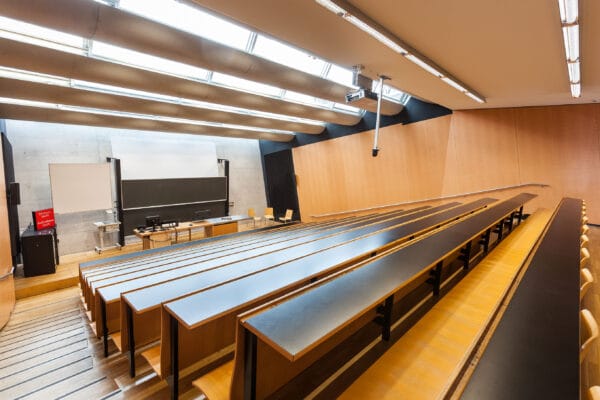
NAME:
SOWI - HS 3
BUILDING:
SOWI
FLOOR:
0
TYPE:
Lecture Hall
CAPACITY:
140
ACCESS:
Only Participants
EQUIPMENT:
Beamer, PC, WLAN (Eduroam), Overhead, Blackboard, Sound System, Microphones, Handicapped Accessible
Climate change research has traditionally relied on macroclimatic data from weather stations, which are situated in open landscapes to ensure comparability. However, local microclimates – shaped by vegetation, topography, soil properties, and land use – can differ significantly from macroclimate, often buffering or amplifying warming trends. These localized conditions are crucial for organisms, particularly in mountainous environments, where steep gradients and diverse habitats create complex thermal landscapes. While microclimates have been considered refugia against climate change, recent evidence suggests that microclimatic warming may exceed macroclimatic warming in certain contexts, posing an overlooked threat to biodiversity. In this talk, we’ll try to quantify and understand these dynamics by leveraging the world’s first global microclimate database, the Microclimate Database (MDB, formerly SoilTemp). We will see how modelling historical trends of microclimate change, assessing the impact of accelerated warming on species redistributions, and exploring conservation strategies tailored to microclimatic dynamics are all needed to tackle this problem.
A particular focus will be given to mountain ecosystems, where microclimate shifts are expected to be highly heterogeneous and strongly influenced by vegetation changes, topographic variation, and land use dynamics. By identifying hotspots of rapid microclimate change and evaluating their effects on species persistence, the talk will discuss critical insights for conservation planning in the face of climate change. Addressing these challenges is essential for predicting future biodiversity patterns and developing effective conservation strategies in a rapidly changing world.

We and use cookies and other tracking technologies to improve your experience on our website. We may store and/or access information on a device and process personal data, such as your IP address and browsing data, for personalised advertising and content, advertising and content measurement, audience research and services development. Additionally, we may utilize precise geolocation data and identification through device scanning.
Please note that your consent will be valid across all our subdomains. You can change or withdraw your consent at any time by clicking the “Consent Preferences” button at the bottom of your screen. We respect your choices and are committed to providing you with a transparent and secure browsing experience.